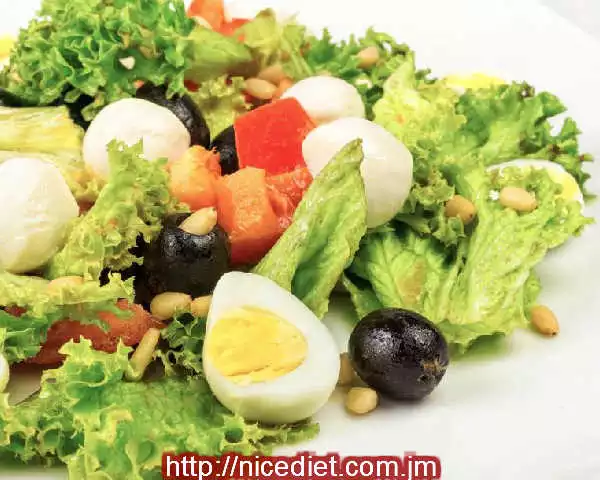Essential Nutrients Strong Healthy Body
The food you consume plays a critical role in providing your body with essential nutrients to maintain optimal health and function.
By incorporating the right nutrients into your diet, you can not only feel better but also build a stronger, more resilient body.
In this article, you will discover the top five essential nutrients that your body needs for a strong and healthy physique.
From vitamins and minerals to macronutrients, each of these elements is crucial in supporting your body’s daily functions, from maintaining a healthy immune system to promoting muscle growth and repair.
Whether you are an athlete, a busy professional, or simply looking to improve your overall well-being, these five essential nutrients will help you achieve your health goals and lead a more fulfilling life.
So, let’s dive into the world of nutrition and discover the power of these essential nutrients for a strong and healthy body.
Table of Contents Essential Nutrients Strong Healthy Body
Get calcium for strong bones.
To ensure optimal bone health, it is crucial to include calcium-rich foods in your diet.
Calcium plays a vital role in building and maintaining strong bones, as well as preventing conditions like osteoporosis.
Incorporating dairy products such as milk, yogurt, and cheese into your meals can provide a significant source of calcium.
Additionally, leafy green vegetables like kale and broccoli, as well as fortified plant-based milk alternatives, are excellent non-dairy sources of this essential nutrient.
Remember to pair calcium intake with adequate vitamin D, as it aids in the absorption of calcium.
By prioritizing your calcium intake, you can actively contribute to the overall strength and health of your body, ensuring strong bones for years to come.
Eat protein for muscle repair.
Proper muscle repair is essential for maintaining a strong and healthy body.
One of the key nutrients that plays a crucial role in this process is protein.
Protein is composed of amino acids, which are the building blocks of our muscles.
Consuming an adequate amount of protein in your diet helps to repair and rebuild muscle fibers that may have been damaged during exercise or everyday activities.
Good sources of protein include lean meats, poultry, fish, eggs, and dairy products.
Plant-based sources like legumes, tofu, and quinoa are also excellent options for those following a vegetarian or vegan diet.
By incorporating protein-rich foods into your meals, you can support the repair and growth of your muscles, ensuring that your body remains strong and healthy.
Omega-3 for heart health.
Omega-3 fatty acids are another essential nutrient for maintaining a strong and healthy body, particularly when it comes to heart health.
These fatty acids play a crucial role in reducing inflammation and promoting optimal cardiovascular function.
Studies have shown that consuming omega-3-rich foods, such as fatty fish like salmon, mackerel, and sardines, can help lower the risk of heart disease and improve overall heart health.
If you follow a vegetarian or vegan diet, you can still obtain omega-3s from plant-based sources like flaxseeds, chia seeds, and walnuts.
Incorporating these omega-3-rich foods into your diet can help support a strong and healthy heart, ensuring that you maintain optimal cardiovascular function and overall well-being.
Vitamin C for immune support.
To maintain a strong and healthy body, it is essential to ensure proper immune function.
One nutrient that plays a key role in supporting the immune system is vitamin C.
This powerful antioxidant helps protect our cells from damage, supports the production of white blood cells, and enhances the body’s ability to fight off infections.
Consuming foods rich in vitamin C, such as citrus fruits, strawberries, bell peppers, and broccoli, can help boost your immune system and keep you feeling your best.
Additionally, taking a vitamin C supplement may be beneficial, especially during times of increased stress or when your immune system needs an extra boost.
By incorporating vitamin C into your daily routine, you can support a strong immune system and maintain overall wellness.
Fiber for digestive health.
To ensure optimal digestive health and overall wellness, another essential nutrient to focus on is fiber.
Fiber plays a crucial role in maintaining a healthy digestive system by promoting regular bowel movements, preventing constipation, and supporting gut health.
By consuming an adequate amount of fiber-rich foods, such as whole grains, fruits, vegetables, and legumes, you can help regulate your digestion and prevent digestive issues.
Fiber also helps to promote a feeling of fullness, which can aid in weight management.
Aim to incorporate a variety of fiber sources into your diet to ensure you are reaping the full benefits of this essential nutrient for digestive health.
Iron for healthy blood cells.
Iron plays a vital role in maintaining healthy blood cells, which is essential for overall wellness.
Your body needs iron to produce hemoglobin, a protein in red blood cells that carries oxygen from your lungs to all parts of your body.
Without enough iron, your body may struggle to produce adequate amounts of healthy red blood cells, leading to iron deficiency anemia.
To ensure you are getting enough iron in your diet, include iron-rich foods such as lean meats, poultry, fish, beans, lentils, spinach, and fortified cereals.
Pairing iron-rich foods with sources of vitamin C, such as citrus fruits or bell peppers, can enhance iron absorption.
Incorporating iron into your diet will help support the production of healthy blood cells and ensure optimal functioning of your body.
Remember, maintaining a balanced intake of the 5 essential nutrients for a strong and healthy body, including iron, is key to overall wellness.
Potassium for nerve function.
To optimize the functioning of your nervous system, it is essential to ensure an adequate intake of potassium.
Potassium is a vital mineral that plays a crucial role in maintaining proper nerve function throughout your body.
It helps facilitate the transmission of nerve impulses and supports the communication between nerve cells.
By including potassium-rich foods in your diet, such as bananas, citrus fruits, avocados, leafy greens, and potatoes, you can help maintain healthy nerve function and promote overall wellness.
Remember, maintaining a balanced intake of the 5 essential nutrients for a strong and healthy body, including potassium, is crucial for supporting the optimal functioning of your nervous system.
B vitamins for energy production.
Another essential nutrient for maintaining energy levels and promoting overall wellness is B vitamins.
B vitamins play a crucial role in energy production within the body.
They are involved in converting the food you consume into usable energy, which is essential for powering your daily activities and maintaining a strong and healthy body.
Specifically, B vitamins, such as B1 (thiamine), B2 (riboflavin), B3 (niacin), B5 (pantothenic acid), B6 (pyridoxine), B7 (biotin), B9 (folate), and B12 (cobalamin), are responsible for metabolizing carbohydrates, proteins, and fats into energy.
By ensuring an adequate intake of B vitamins through a balanced diet or supplements, you can support your body’s energy production processes and maintain optimal vitality throughout the day.
Remember, incorporating B vitamins as part of the 5 essential nutrients for a strong and healthy body is essential for supporting your overall well-being.
In conclusion, incorporating these 5 essential nutrients into your diet is crucial for a strong and healthy body.
Remember to consume a balanced and varied diet to ensure you are getting enough of these key nutrients.
Keeping your body well-nourished will not only help you physically, but also improve your overall well-being and quality of life.
So make sure to prioritize these essential nutrients in your meals and enjoy the benefits of a healthy lifestyle.
FAQ
What are the five essential nutrients that are vital for a strong and healthy body?
To keep your body strong and healthy, you need five essential nutrients: carbohydrates, proteins, fats, vitamins, and minerals.
Carbohydrates provide energy to fuel your activities, while proteins help build and repair tissues.
Fats are important for brain function and provide energy storage.
Vitamins support various bodily functions and help prevent deficiencies.
Minerals are necessary for proper body functioning, including bone health and muscle contraction.
By ensuring you consume a balanced diet that includes these five nutrients, you can maintain a strong and healthy body.
How does each of the five essential nutrients contribute to maintaining a strong and healthy body?
To maintain a strong and healthy body, you rely on the five essential nutrients in various ways.
Carbohydrates provide you with energy for daily activities and exercise.
Proteins help in repairing and building tissues and muscles.
Fats are vital for hormone production and absorption of certain vitamins.
Vitamins support your immune system and help in various bodily functions.
Lastly, minerals, like calcium, strengthen your bones and teeth.
By incorporating a balanced diet that includes these nutrients, you ensure that your body functions optimally and stays healthy.
What are some food sources that are rich in these five essential nutrients?
You can find a variety of food sources that are rich in essential nutrients.
For protein, try incorporating lean meats, tofu, and legumes into your diet.
To boost your calcium intake, consume dairy products, leafy greens, and fortified plant-based milks.
For iron, consider eating red meat, beans, and dark leafy greens.
To get enough vitamin C, include citrus fruits, strawberries, and bell peppers in your meals.
Lastly, for omega-3 fatty acids, try adding fatty fish, walnuts, and flaxseeds to your diet.
Remember to prioritize a balanced and diverse diet to ensure you’re getting all the necessary nutrients.
Can a person get all of these essential nutrients from a vegetarian or vegan diet?
Yes, you can obtain all essential nutrients from a vegetarian or vegan diet.
By focusing on a variety of plant-based foods such as fruits, vegetables, whole grains, legumes, nuts, and seeds, you can ensure a sufficient intake of vitamins, minerals, and protein.
Incorporating foods like tofu, tempeh, lentils, quinoa, and fortified plant-based milk can provide you with essential nutrients like calcium, iron, and vitamin B12.
Additionally, supplementing with vitamin B12 or omega-3 fatty acids may be necessary to meet specific requirements.
With proper planning and a balanced approach, a vegetarian or vegan diet can fulfill all your nutritional needs.
Are there any potential risks or side effects associated with consuming excessive amounts of these essential nutrients?
When consuming excessive amounts of essential nutrients, there can be potential risks and side effects for you.
Overdosing on certain vitamins and minerals, such as vitamin A or iron, can lead to toxicity symptoms like nausea, fatigue, or organ damage.
Additionally, consuming excessive amounts of certain nutrients, like fat-soluble vitamins, can be stored in your body and build up over time, causing long-term health problems.
It is important to consult with a healthcare professional or nutritionist to determine the appropriate dosages of essential nutrients for your specific needs, to ensure you maintain a healthy balance and avoid any potential risks or side effects.







